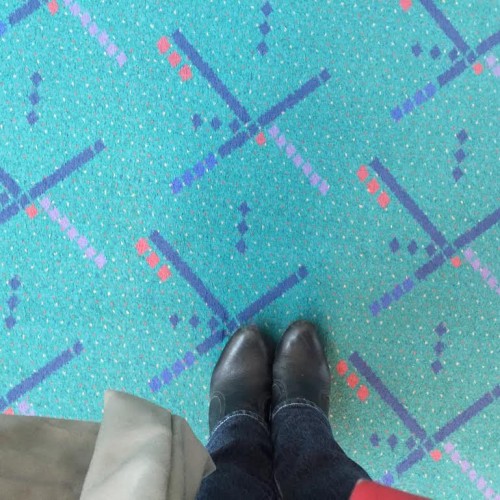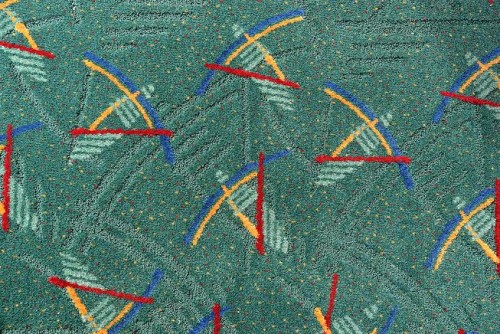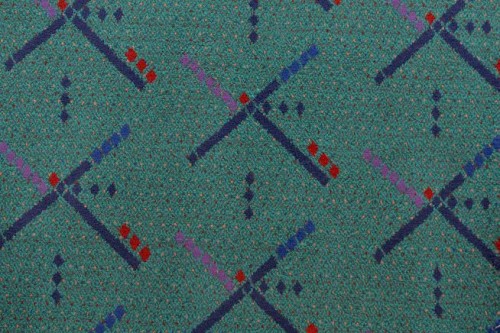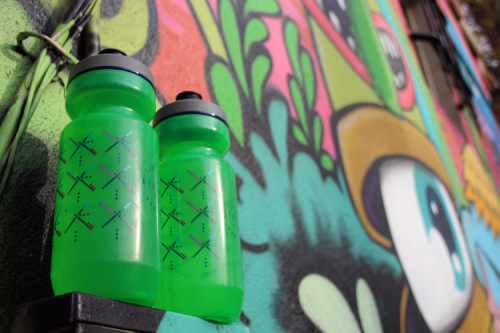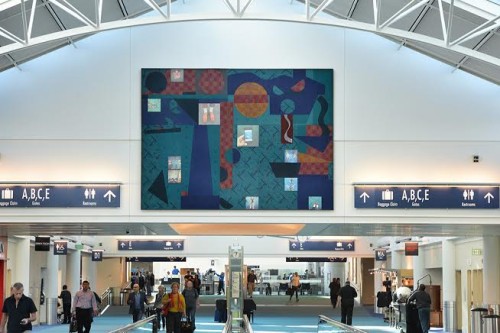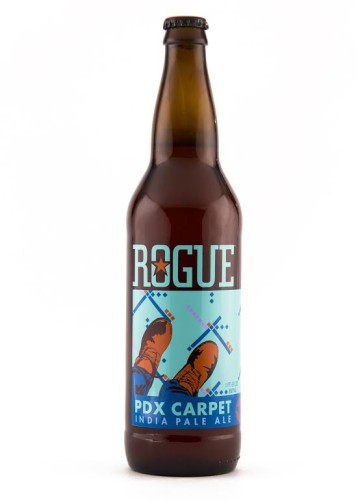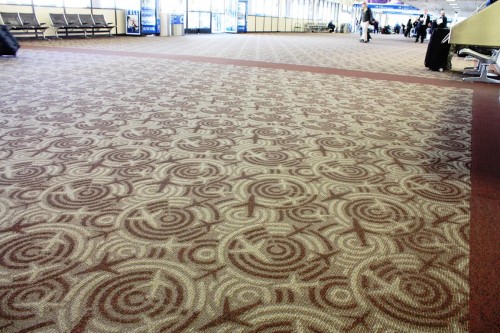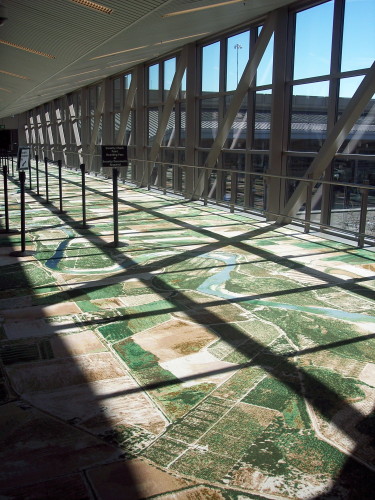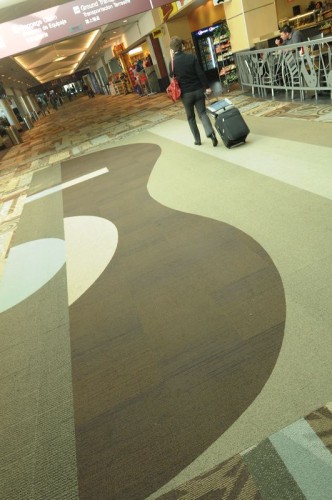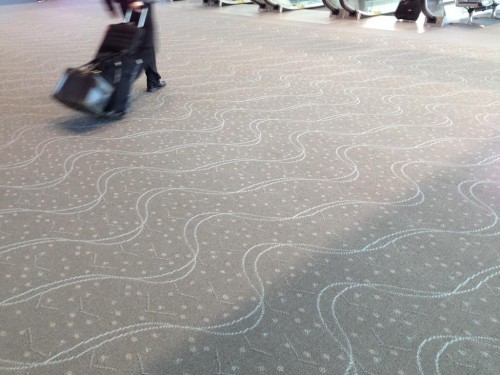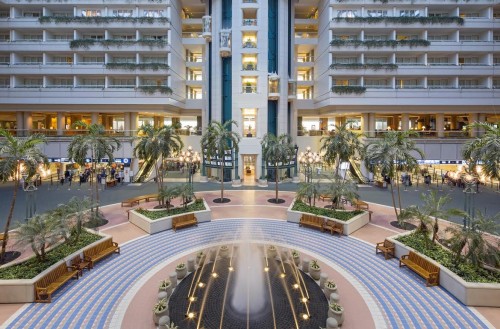It’s usually a bit of an inconvenience, but not that big a deal, when an airport changes out the carpeting in the terminals.
But because the current carpet at Portland International Airport has become a social media sensation, all manner of media will be on hand Friday when construction crews begin removing the existing carpet at PDX and preparing the floor for the installation of 13 acres of new carpet—enough to cover nearly 10 football fields.
Here’s the story of the PDX carpet and a round-of of some quirky airport carpets found at other airports around the country that I put together for my “At the Airport” column on USA Today.
Installed in the late 1980s, the old PDX carpet sports a geometric pattern inspired by the airport’s intersecting north-south runways and was for years an ignored part of the airport décor.
But then Portland began celebrating its core weirdness, social media became the big thing, and the rug became a hip symbol of home celebrated on Facebook, Instagram and Twitter and with souvenirs ranging from socks, caps and water bottles to T-shirts, mugs, tote bags and bike helmets.
Carpet-inspired art and ale followed: Nancy Wilkins’s 11-foot by 16-foot collage, made of pieces of PDX carpet and titled “Carpet Diem!” was recently installed at the airport and Oregon-based Rogue Ales & Spirits just introduced PDX Carpet IPA.
PDX isn’t the only airport to forgo tile, terrazzo or other hard flooring in favor of rugs more difficult to maintain, but worth a second look.
When it was time to order 10.5 acres of new carpeting for its three terminals, Phoenix Sky Harbor International Airport looked for something that would hold up to high foot traffic and repeated cleaning, and be easily recycled when it came time for replacement.
In 2005, PHX got all that (at the cost of $34.66 per square yard) plus a cool, custom pattern that looks like an aircraft on a radar screen.
In the pedestrian walkway between Terminal A and the parking garage at Sacramento International Airport, travelers walk across the 150-foot-long “Flying Carpet” created by artist Seyed Alavi. Installed in 2005, the woven, woolen carpet portrays a digital, aerial image of about 50 miles of the Sacramento River and nearby farm fields and orchards.
Part of an “Art in Public Places” project, the commission for SMF’s Flying Carpet included a duplicate version of the rug that has been in storage.
There are no socks, caps, beer or other official souvenirs (yet) bearing the carpet patterns from Phoenix Sky Harbor or Sacramento International Airports, but visitors regularly post images of the carpets on social media.
With subtle musical notes and musical instruments throughout, the carpet at Nashville International Airport celebrates Music City.
Denver International Airport recently installed 42,000 square yards of new carpeting in Concourse B and 25,000 square yards of new carpeting in Concourse C, at a cost of $2.5 million and $1.7 million respectively. The pattern isn’t aviation-themed, but casually references rivers and streams (in the walking areas) and (in the seating areas) things passengers often see out the windows at DEN: rain and snow.
The pattern in the 33 acres of teal and white carpeting at Orlando International Airport is quite simple but, along with plenty of light, water and live landscaping, is in keeping with the goal of creating an environment that is comfortable, people-friendly.
Meanwhile, back at Portland International Airport, the old carpet will be gone, but not forgotten: a limited number of 1,000 square yard sections of the old carpet will be made available to winning applicants who will likely sell or give it away small bits of the carpet to others.
